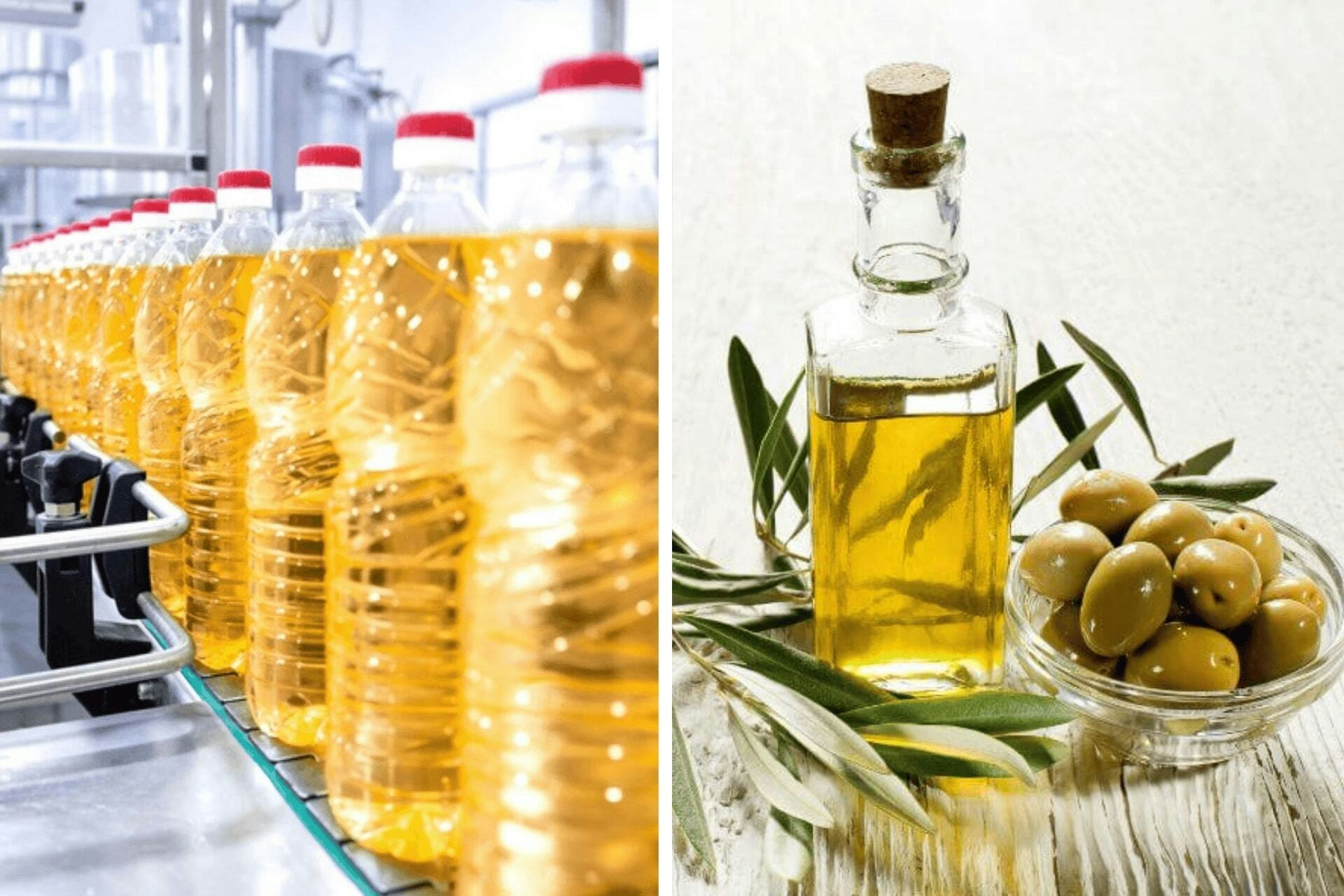Sesame oil is a popular ingredient in many kitchens, especially for cooking Asian dishes. But what if you run out of sesame oil while cooking? Or what if you can’t use it because of taste preferences or simply not finding it at your local store? That’s when having good substitutes comes in handy.
In this guide, we’ll first explain what sesame oil is and why it’s so special. Then, we’ll look at the best sesame oils substitutes for both regular and toasted, including everyday oils you may already have at home and some unique options that bring a similar flavor.
What is Sesame Oil?
Sesame oil is made by pressing tiny sesame seeds to release their natural oils. It has been used for thousands of years in cooking, medicine, and even skincare. Today, sesame seed oil is considered one of the most valuable edible oils in the world because of its rich taste and healthful qualities ❶.
There are two main types of sesame oil, and each is used in different ways.
Regular sesame oil is light in both color and flavor. Because it can handle higher cooking temperatures, it’s often used for frying, sautéing, and stir-frying. Many home cooks keep it in their kitchens as a dependable oil for everyday meals.
Toasted sesame oil, on the other hand, is made from roasted sesame seeds, which gives it a darker color and a much stronger, nutty taste. Rather than cooking with it, people usually add it at the end of a recipe. A drizzle of toasted sesame oil over noodles, soups, sauces, or marinades adds a rich finishing touch that makes the dish stand out.
Best Sesame Oil Substitutes
Sesame oil is a staple in many recipes, but the regular kind is actually quite neutral in flavor. That means if you run out, it’s one of the easiest oils to swap out!
Several alternatives can step in as everyday cooking oils to give you similar results.
Algae Cooking Oil
Algae cooking oil is made from microalgae. It has a very high smoke point of 535°F, which means it can be used for almost any cooking method — stir-frying, roasting, baking, or grilling.
It has a neutral taste, so it won’t change the flavor of your food, and it’s packed with healthy omega-9 fats that make it a nutritious choice.
For example, if you’re making a vegetable stir-fry, algae cooking oil will give you the same light texture while allowing the natural flavors of your ingredients to stand out.
Related: Algae Oil Benefits
Avocado Oil
Avocado oil is made from the flesh of ripe avocados and has a mild, buttery flavor that works well in both cooking and salad dressings. The unrefined (cold-pressed) version is the better choice for nutrition since it retains more antioxidants and beneficial compounds. While its smoke point is somewhat lower than the refined type, unrefined avocado oil can still be used safely for medium to high heat cooking, such as sautéing or roasting.
Related: Avocado Oil Substitutes
Olive Oil
Olive oil is pressed from olives and has been used for thousands of years, especially in Mediterranean cooking. Refined olive oil has a lighter taste and higher smoke point than extra virgin, making it a better substitute for neutral sesame oil in frying or sautéing. Even though its flavor is a little stronger, it still blends well into many dishes without overpowering them.
Related: Olive Oil Substitutes
Grapeseed Oil
Grapeseed oil is made from the small seeds left over from winemaking. It has a clean, neutral flavor and a moderately high smoke point. Since it doesn’t add much taste of its own, grapeseed oil lets the seasonings in your recipe take the lead.
For example, if a stir-fry recipe calls for regular sesame oil, you can easily swap in grapeseed oil and still get the same crisp texture and balanced flavor from your vegetables and sauces.
Related: Grapeseed Oil Substitutes
Canola Oil
Canola oil comes from the seeds of the canola plant, a type of rapeseed. It’s one of the most widely used cooking oils in the world because it’s affordable, easy to find, and very versatile.
It works in almost any type of cooking, and even salad dressings. It’s a convenient stand-in when you need a simple, everyday substitute for sesame oil.
Related: Canola Oil Substitutes
Best Toasted Sesame Oil Substitutes
Toasted sesame oil has a deep, nutty taste that’s hard to copy exactly. Unlike regular sesame oil, which is neutral and easy to replace, the toasted version is mainly used for flavoring at the end of cooking.
If you don’t have toasted sesame oil on hand, a few other ingredients can give your dish a similar richness.
Peanut Oil
Peanut oil made from roasted peanuts has a warm, nutty flavor that works well in place of toasted sesame oil. It’s especially good in stir-fry sauces or drizzled over noodles. You can swap it in using the same amount the recipe calls for — an easy one-to-one substitute.
Related: Peanut Oil Substitutes
Walnut Oil
Walnut oil, made from the nuts of the walnut tree, has a bold, earthy flavor that can stand in for toasted sesame oil in marinades, dressings, or dips. A little goes a long way, so use it sparingly.
Perilla Oil
Perilla oil, common in Korean cooking, comes from roasted perilla seeds. It has a toasty, slightly herbal taste that makes it a close flavor match for toasted sesame oil. You can find it in Asian grocery stores, and it works well for adding depth to soups, stews, or sauces.
Tahini
Tahini is a paste made from ground sesame seeds, so it naturally carries the same nutty flavor. While it’s thicker than oil, mixing a small amount with a bit of neutral oil can create a quick replacement for toasted sesame oil in dressings or marinades.
Summary
Sesame oil, whether regular or toasted, adds unique flavor and depth to your cooking. While it’s a beloved kitchen staple, there are plenty of substitutes that can step in when needed.
Among all the options, chef-grade algae cooking oil from Algae Cooking Club is an excellent choice if you’re looking for a neutral oil. It works well for everyday cooking, from stir-fries to roasting, and is sustainably sourced while packed with healthy fats!




